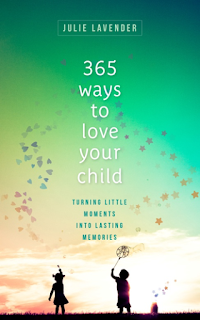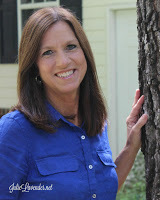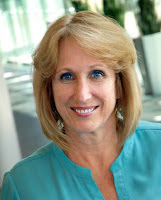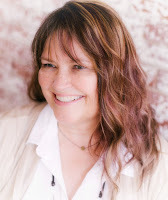Edie Melson's Blog, page 185
October 12, 2020
Writing With An Attitude of Integrity

by Cindy Sproles @CindyDevoted
My agent recently landed a new book contract for me. Jumping around the house shouting woo-hoo aside, I regained my composure and re-read the note the acquisitions editor send to my agent.“…a wonderful author to work with…” “…willing to do what we ask on marketing…” “…we enjoyed working with her…”
Throughout the note, the acquisitions manager continued to remark on “this author’s willingness.” Though I was humbled by her kind words, something from Liz Curtis Higgs trickled back to mind. She said as she spoke at a conference, “Who wants to work with a person who thinks they are the be-all, end-all when there are authors out there who have a spirit-filled heart?”
Those words spoke volumes to me and I have remembered them for years. Who wants to work with a person who thinks they are the be-all, end-all? The answer is simple – no one! Being a willing author, and one with a teachable heart is something we can all do. We simply have to want to do it.
I believe in teaching loving truth to conferees and the truth is, a bad attitude will prevent the advancement of your writing career. God has blessed me to stand on both sides of the publishing table – one as an author and the other as a managing editor. The marriage of these two things has driven home the vital importance of being an author with a willing and teachable spirit. Integrity is more than honesty. It’s your outward and inner attitude. It’s how you treat others. How you respond to hardship, trials, and change. Integrity is dependability and it’s the combination of all these things that label you an author of integrity.
How does attitude affect your career? Like any job, there are folks in the line of authority who need cooperation. If you harbor a bad attitude or if you are a demanding author who stomps your feet at every turn, folks dread working with you. Before you know it, you gain a less attractive label. Unfortunately, one that will follow you just as close.
Here are some things to stick in your author toolbox that will help you maintain the title, an author of integrity.
Open minds invite cooperation: In a world where self-publishing on Amazon has primed writers to do all their own work, a certain attitude surfaces when those writers sign a traditional publishing contract. Once you’ve set at the steering wheel, it’s hard to scoot over to the passenger seat. When we self-publish, especially in areas like Amazon, we’re forced to learn what I call, fix and slap, publishing. In other words, we learn to quickly fix things and slap them together forgetting that there is a level of professionalism required to attain a product that looks…well, not self-published. (Let me qualify this statement. When you self-publish through a company that takes the reins but allows you full creative ability, it’s different than when you are at the helm, punching and prodding your way through a maze of stuff alone. There are amazing self-publishing companies available who will help you through the steps.) Moving into the traditional publishing world, removes your hands-on approach and requires you to submit to deadlines, publisher requirements, and qualified editors – folks who have years of experience. When you are asked to loosen whitened knuckles so others can take the wheel, sometimes the attitude gets a little touchy. Possessive. You are no longer the driver. You are now a passenger. Have an open mind and trust your publisher knows what is best for your novel. Cooperate for a superb finished product.
Willingness invites participation: When you enter the traditional publishing world, remember you have a team behind you who wants nothing more than a huge success for you. Be willing to trust their years of experience. Allow them to move a project ahead, even if it may not be exactly as you imagined. You may have a picture in your mind for a cover, but the marketing team, who spends hundreds of hours researching titles, photos, colors, and fonts understands what draws a reader’s eye to your book on the shelf. They can produce an eye-catching cover that doesn’t look like the pictures were cut from a magazine and pasted to the front, one that shows readable fonts in colors that don’t look like you’ve melted a Crayola crayon and dropped it on the page. Be willing.
Be timely: Meet deadlines on time. Though publishers are willing to move deadlines in the event of uncontrollable issues, remember it’s not a simple process to just change a date. Your book is one of many in the pipeline and when you move or miss a deadline, you are disrupting the work of everyone’s predetermined timelines from editing to marketing, to quality control. Make every effort to put edits and deadlines at the top of your priority list. Never wait until you put yourself in a position that causes missed deadlines.
Work through the proper protocol: Because we are human, there are times we run upon disagreements with our editors. Keep in mind your editor is not your enemy. It’s their job to help you and the publisher come out with a successful book. But occasionally we hit a snag that we can’t seem to work through. Don’t jump the gun and fire an angry letter to your publisher. Bad move. Instead, contact your agent and let them step in as the negotiator – after all, that is their job. Ninety-nine percent of the time, they can help solve the issue with your editor. If you are un-agented, then ask to have a conversation with the managing editor who oversees the projects. Generally, things iron out smoothly. Jumping the protocol of a publishing company is a bad move, regardless.
The right attitude transpires into good things. You will lay the groundwork for future contracts based not only on your work but also on your integrity as a solid author. Strive to be an author whose integrity shines. You will set the pace for your writing future.
TWEETABLEWriting With An Attitude of Integrity - @CindyDevoted on @EdieMelson (Click to Tweet)
 Cindy K. Sproles is an author, speaker, and conference teacher. She is the cofounder of Christian Devotions Ministries and the executive editor for christiandevotions.us and inspireafire.com. Cindy is the lead managing editor for SonRise Devotionals and also Straight Street Books, both imprints of LPC/Iron Stream Media Publications. She is a mentor with Write Right and the director of the Asheville Chrisitan Writers Conference held each February at the Billy Graham Training Center, the Cove, Asheville, NC. Cindy is a best selling, award winning novelist. Visit Cindy at www.cindysproles.com.
Cindy K. Sproles is an author, speaker, and conference teacher. She is the cofounder of Christian Devotions Ministries and the executive editor for christiandevotions.us and inspireafire.com. Cindy is the lead managing editor for SonRise Devotionals and also Straight Street Books, both imprints of LPC/Iron Stream Media Publications. She is a mentor with Write Right and the director of the Asheville Chrisitan Writers Conference held each February at the Billy Graham Training Center, the Cove, Asheville, NC. Cindy is a best selling, award winning novelist. Visit Cindy at www.cindysproles.com.
Published on October 12, 2020 22:00
October 11, 2020
What Can We Learn in This Crisis?

by Yvonne Ortega @YvonneOrtega1
“God, what can we learn in this crisis? It’s not a short flu season, but a pandemic with no end in sight. President Trump and his wife tested positive for COVID-19 after the first debate on a Thursday evening, went into quarantine at the White House, and the next day checked into Walter Reed Hospital. As of this writing on October 5, 2020, the president returned to the White House. What about all the people from both parties who attended that first debate between the two candidates? They were exposed to the virus. Our president is seventy-four years old, and Joe Biden is seventy-seven years old. Age is against both of them.
The stock market goes up and down like a roller coaster as states report new cases of COVID-19. People test negative who are positive, and others test positive who are negative. In addition to that, others walk around asymptomatic, but they have COVID-19.
With these national crises, many of us also have our own personal crises. Poor physical health, death of loved ones, relationship difficulties, mental health problems, and lost property because of fires or floods. What can we learn in this crisis?
First, we can learn the value of honesty with God.
God made us and knows our personality, character, and thoughts. He doesn’t forget us or our problems.
During one of our tropical storms, a widow’s chimney was damaged. She’s on a fixed income.
Her insurance agent said, “You can’t prove the storm caused it. So, we aren’t responsible.”
She told me, “As it is, I eat peanut butter and jelly sandwiches or boiled eggs.” She isn’t alone in her attempts to manage on little money.
Many feel extreme anxiety and depression because of their losses of cars, homes, and jobs. In worry and hopelessness, they’ve withdrawn from others including God.
How can we hide from God? As the psalmist wrote, “Where can I go from your Spirit? . . . If I go up to the heavens, you are there; if I make my bed in the depths, you are there” (Psalm 139:7a–8 NIV).
Whatever our situation is, we can learn the value of honesty with God. He knows what you and I are thinking anyway and wants to hear from us. We can ask him for help.
Second, we can learn the reality of spiritual warfare.
Satan can use health issues to his advantage. Both my allergy and asthma specialist and also my ophthalmologist have worked long days without breaks. The high pollen and ragweed rates in some areas, and the fires and smoke in others have made life extremely difficult for children, adults, and pets.
Constant weather changes can aggravate allergies and asthma. In the past eight months, my friend learned the reality of spiritual warfare. Satan has used their battle with allergies and a lack of energy to discourage them. Each morning she has prayed with the twins and said, “We need to put on the spiritual armor of God.” She has repeated throughout the day, “The thief comes only to steal and kill and destroy” (John 10:10a ESV).
Third, we can learn the power of praise.
Several of us prayed with a friend, whose dearest friend and prayer partner was dying. Our friend would miss her friend, but the assurance of her friend’s eternal homegoing and their reunion one day in heaven comforted her. She could picture those in heaven waiting to welcome her friend home. That helped our friend learn the power of praise.
Sometimes we forget to praise God until we are out of options. One of my friends has her in-laws with her. Her husband’s parents couldn’t handle the loneliness and quarantine restrictions at the senior living community.
And yet, they praise God because of how quickly they packed his parents’ belongings and moved things around at home to place his parents on the first floor of their three-level condo.
The psalmist said, “As for me, I will always have hope; I will praise you more and more” (Psalm 71:14, NIV). We can choose to hope and praise God more and more.
We can’t claim perfection this side of heaven, but we can strive for progress.
In conclusion, here is what we can learn in a crisis:The value of honesty with GodThe reality of spiritual warfareThe power of praiseIn your current circumstances, which of the three lessons will you work on this week?Yvonne speaks with honesty and humor as she shares her life and struggles through presentations that empower women to find peace, power, and purpose through God’s Word.
TWEETABLEWhat Can We Learn in This Crisis? @YvonneOrtega1 on @EdieMelson (Click to Tweet)
 Yvonne’s background as a licensed professional counselor brings a unique perspective into the heart of women. She’s a speaking and writing coach and the owner of Moving from Broken to Beautiful®, LLC. She belongs to the Advanced Writers and Speakers Association, the Christian Authors Network, the National Speakers Association, and Toastmasters International.
Yvonne’s background as a licensed professional counselor brings a unique perspective into the heart of women. She’s a speaking and writing coach and the owner of Moving from Broken to Beautiful®, LLC. She belongs to the Advanced Writers and Speakers Association, the Christian Authors Network, the National Speakers Association, and Toastmasters International.She celebrates life at the beach, where she walks, builds sand castles, blows bubbles, and dances.
Published on October 11, 2020 22:00
October 10, 2020
Born with a Purpose

by Martin Wiles @LinesFromGod
“For I know the plans I have for you,” says the Lord. “They are plans for good and not for disaster, to give you a future and a hope.” Jeremiah 29:11 NLT
When announcement time came at the end of our worship service, he proudly proclaimed he had just celebrated his ninth birthday for the ninth time.John’s birth weight registered just shy of two pounds. Not necessarily a thing to get overly concerned about in our world of modern medicine marvels, but still a situation that can pose danger in the present and health problems in the future. Wonderfully trained doctors and nurses staff our modern NICUs. Trouble is, these present-day marvels weren’t around when John’s mother birthed him.
I did the math. John had just turned 81, meaning his mom birthed him in 1939. His first bed was a shoebox, and his first crib one of the drawers in a set of chest of drawers. His mother placed a large piece of ice near him, and then let a fan blow the cool air across John’s tiny body. You see, the month was July, and they lived in Mississippi.
When John’s mother asked the doctor what to feed him, he said, “Just let him nurse from your breast for as long as he lives.” His words sounded like a death sentence for sure.
But John didn’t die. In fact, he grew up to be a healthy man who served in various local churches by working with the youth, leading mission trips, providing music, and leading worship. God had plans for him that his mother nor the doctor could imagine. And when God has a plan, birth weight poses no problem.
Just as God had a plan for John and for Jeremiah and the nation of Israel, He has plans for us. Of course, we have a choice in those plans. God gives us free will. How His sovereignty aligns with that has confounded the greatest minds, but the Bible teaches both.
Like Jonah, we can choose to ignore God’s plan and go our own way. But God wouldn’t have His plan thwarted, so He let Jonah spend a few nights in the belly of a large fish to teach him a lesson about the dangers of ignoring God’s plan. Although God has never sent a large fish my way, He has steered me back to His path through various unpleasant measures.
I’ve always discovered—sometimes later rather than sooner—than following God’s plan is best. God’s will is done when I do, and I’m happier in the end. In those times when I’ve been unsure of what God’s plan entailed, prayer, meditation on His Word, and listening to the Spirit helped.
So don’t sell God short. His plan is beyond our wildest dreams. It can take us to places we never thought we’d go—geographically and otherwise—and it might also include pain we never imagined we’d have to endure. Whatever the nature of the His plan, God will walk with us, hand in hand, and accomplish through us more than we could ever imagine.
Say yes to God’s plan, whatever it involves.
TWEETABLE Born with a Purpose - Martin Wiles @LoveFromGod on @EdieMelson (Click to Tweet)
 Martin Wiles is the founder of Love Lines from God (www.lovelinesfromgod.com) and serves as Managing Editor for Christian Devotions, Senior Editor for Inspire a Fire, and Proof Editor for Courier Publishing. He has authored six books and has been published in numerous publications. His most recent book, A Whisper in the Woods: Quiet Escapes in a Busy World, released in December 2019. He is a freelance editor, English teacher, author, and pastor.
Martin Wiles is the founder of Love Lines from God (www.lovelinesfromgod.com) and serves as Managing Editor for Christian Devotions, Senior Editor for Inspire a Fire, and Proof Editor for Courier Publishing. He has authored six books and has been published in numerous publications. His most recent book, A Whisper in the Woods: Quiet Escapes in a Busy World, released in December 2019. He is a freelance editor, English teacher, author, and pastor.
Published on October 10, 2020 22:00
October 9, 2020
The Importance of Choosing What’s Enough in Our Lives

by Beth K. Vogt @BethVogt
If we were sitting together in my living room discussing our lives right now … well, I would have vacuumed my house and made coffee.But I digress.
Of course, we’d ignore my lack of vacuuming. Instead, we’d talk over coffee about what we’re doing. Things we tackle day in and day out, like writing a blog post or a newsletter or managing social media or balancing our real lives with our writer lives.
Conversation would flow so that we’d talk about what things we have to do in the future. Projects we’ve planned into our regularly scheduled days like a virtual writers workshop or a weekend getaway with our family.
Given time, perhaps we’d be honest about the things we struggle to get done. Finishing – or maybe starting – a manuscript. Sending off a requested book proposal. Trying, one more time, to work on a complicated relationship. (Raise your hand if you don’t have one of those in your life.)
One question lurks behind all our doings and have-to-do’s and need-to-get-done’s: Have I done enough?
We wake up and start each day by making some kind of list – mental, virtual, or physical – of what we want to accomplish by the time we brush our teeth and crawl under the covers again.
Often, we end the day with some of our tasks left undone. Odds are, even if we’ve checked off everything on our list, we’re dissatisfied with our efforts. (Hello, perfectionism!)
As we close our eyes and drift off to sleep, the question, “Have I done enough?” taunts us. Sometimes I’ve tossed back the covers, gone back downstairs, and worked on a project while the rest of my family slept.
The question “Have I done enough?” is an unrelenting task master.
Here’s our reality check for today: We will never satisfy the elusive standard of “enough.” But how can we begin to control the demands of “enough,” rather than allowing it to control us?
1. Realize “enough” has a hidden agenda. Enough often means you need to do more – and more is defined by someone else’s standard. You’ve been obeying this internal voice of authority for so long you don’t even realize this person has defined what is enough in your life. If all your doing is based on someone else’s standard, stop. Pray. Seek counsel. Develop your own definition of enough.
2. Put a time limit on “enough.” At the end of the day, when you hear the whisper “Have I done enough?” answer the question this way: “Yes, I’ve done enough for today.” You’re acknowledging there’s more to do, but you’re allocating it to another time frame, which allows you to rest. And rest is an important part of your day – and night – so that you’re energized for tomorrow.
3. Ask yourself “Have I given myself enough grace?” If there’s one thing we don’t give ourselves enough of, it’s the much-needed commodity of grace. We are too often harsh with ourselves, and rarely kind enough. Today, I encourage you to offer yourself more grace … because we can never have too much of that.
TWEETABLEThe Importance of Choosing What's Enough in Our Lives - @BethVogt on @EdieMelson (Click to Tweet)
 Beth K. Vogt believes God’s best often waits behind the doors marked “Never.” Having authored nine contemporary romance novels and novellas, The Best We’ve Been, the final book in Beth’s Thatcher Sisters Series with Tyndale House Publishers, releasers May 2020. Other books in the women’s fiction series include Things I Never Told You, which won the 2019 AWSA Award for Contemporary Novel of the Year, and Moments We Forget. Beth is a 2016 Christy Award winner, a 2016 ACFW Carol Award winner, and a 2015 RITA® finalist. An established magazine writer and former editor of the leadership magazine for MOPS International, Beth blogs for Learn How to Write a Novel and The Write Conversation and also enjoys speaking to writers group and mentoring other writers. Visit Beth at bethvogt.com.
Beth K. Vogt believes God’s best often waits behind the doors marked “Never.” Having authored nine contemporary romance novels and novellas, The Best We’ve Been, the final book in Beth’s Thatcher Sisters Series with Tyndale House Publishers, releasers May 2020. Other books in the women’s fiction series include Things I Never Told You, which won the 2019 AWSA Award for Contemporary Novel of the Year, and Moments We Forget. Beth is a 2016 Christy Award winner, a 2016 ACFW Carol Award winner, and a 2015 RITA® finalist. An established magazine writer and former editor of the leadership magazine for MOPS International, Beth blogs for Learn How to Write a Novel and The Write Conversation and also enjoys speaking to writers group and mentoring other writers. Visit Beth at bethvogt.com.
Published on October 09, 2020 22:00
October 8, 2020
3 Elements in a Caring Writing Community

by Joshua J. Masters @JoshuaJMasters
As I completed the manuscript I recently sent to my publisher, the process overwhelmed me with questions.What freed my keystroke paralysis was not a website or reference book. It was the assurance of my Christian writing community.
I went to several groups and received direction and encouragement from people I trust—believers who’ve traveled the same road I was walking.
Information can never replace relationships.
I love our Christian writing community. And I think it’s significant that the word “Christian” comes before the word “writing.”
As a care pastor, we talk a lot about caring communities in our department. When someone comes to us for help, the first question we ask is about their support system. Are they connected to a healthy community? We address the immediate need, but if they’re not connected to a growing group of believers, that’s always the first step. Why? Because growth and healing never happen in isolation.
That’s also true in our Christian writing communities.
The primary goal of a Christian writer isn’t to sell books, publish an article, or get a contract. Those are all nice, but if God’s called you to a life of writing, His purpose is to draw you closer to Him, have you draw others closer to Him, and to glorify His name. Anything that distracts from those three goals will damage our writing.
So, how do we build Christian Writing Communities that go beyond supporting one another in the business of writing, and build one another up in the call of writing?
Here are three elements our Care Ministries team look for in a healthy, caring community:
1. Caring Communities encourage one another to pursue a growing relationship with Christ.
Jesus said, “Yes, I am the vine; you are the branches. Those who remain in me, and I in them, will produce much fruit. For apart from me you can do nothing.” (John 15:5 NLT)
I’ve never met a Christian author who didn’t want their writing to bear fruit. That only happens when our primary focus is on growing in Christ. If Jesus is the vine, we’re the branches, and our writing is the fruit, then we must stay connected to Him.
Yes, we must continue to encourage one another in the business of writing, but our first priority must be to encourage one another in our faith.
Here are some questions I can ask myself:Who is encouraging me to pursue a deeper relationship with Christ in my writing?Who am I encouraging to pursue a deeper relationship with Christ in their writing?When someone is struggling with their writing, am I willing to invest in their spiritual walk?
2. Caring Communities are inspired by God’s Word and His Spirit.
All Scripture is inspired by God and is useful to teach us what is true and to make us realize what is wrong in our lives. It corrects us when we are wrong and teaches us to do what is right. (2 Timothy 3:16 NLT)
How often have I allowed a deadline or clever writing idea to draw me away from my devotional time with God? That’s poison to a Christian writer’s soul. I’m hardly ever in the company of a Christian writing group without someone mentioning Story Trumps Structure by Steven James, On Writing by Stephen King, or The Elements of Style by Strunk and White. Those should probably be on every writer’s bookshelf, but how often do we say, “I want to share what I read in the Bible this morning. It’s had a big impact my writing” to our group?
Here are some questions I can ask myself:What evidence in my life shows that I’m inspired by God’s Word and Spirit?How does my time in Scripture affect my writing career?As I read the Bible, what do I sense God wants me to know about my writing?How am I encouraging other writers to see their careers through the lens of God’s truth?
3. Caring Communities act to meet the needs of others.
And don’t forget to do good and to share with those in need. These are the sacrifices that please God. (Hebrews 3:16 NLT)
This is a more difficult verse than it first appears because many of us make sacrifices for our writing that are not pleasing to God. Don’t get me wrong, sometimes we must eat at the keyboard, reschedule family time, and resist going out with friends. Deadlines are deadlines. But when that becomes a lifestyle, we stop sacrificing for Christ and start sacrificing for our own success.
Genuine sacrifice for the Lord is always selfless and benefits others. Even as a pastor, I sometimes come across someone in need and think, I don’t have time for this. I have too much to do. And if that’s what we’re thinking, we do have too much to do.
As Christians, our primary purpose is serving others in a healthy way. That goes beyond what our writing offers the world. It requires investing in the needs of our family, neighbors, and writing community.
God will bless our writing when we shift our focus away from our task-list long enough to see the opportunities to serve others He places before us.
Here are some questions I can ask myself:How am I meeting the needs of those around me?Is there someone struggling in our writing community that we can all rally around?Do I follow-through on the prompts I feel from the Spirit to reach out to other writers?
What an incredible opportunity God has given us.
If God has called you to a life of writing, He wants you to experience growth, joy, and fruit as you influence others for His Kingdom.
I’ve never seen a more supportive group of professionals than I have in the Christian Writing Community. I’ve built deep friendships, received encouragement, and learned more than I ever could from a book. But it’s healthy and God-honoring to evaluate our hearts regularly with these questions.
As we continue to coach and strengthen one another in the writing industry, let’s be intentional and humble in this call to action:
Let us hold tightly without wavering to the hope we affirm, for God can be trusted to keep his promise. Let us think of ways to motivate one another to acts of love and good works. And let us not neglect our meeting together, as some people do, but encourage one another, especially now that the day of his return is drawing near. (Hebrews 10:23-25 NLT)
TWEETABLE 3 Elements in a Caring Writing Community - @JoshuaJMaster on @EdieMelson (Click to Tweet)
 Joshua J. Masters is a pastor, author, and speaker. He’s been featured on CBN Television, HIS Radio, and the Light Radio Network. Josh is the author of American Psalms: Prayers for the Christian Patriot and is a contributing author for Feed Your Soul, Refresh Bible Study Magazine, and One Christian Voice. Josh has also worked as an actor and crew member in the film industry (SAG/AFTRA) and continues to have a passion for film. He lives with his wife, Gina, and Franklin the Pup outside Greenville, South Carolina where he serves as a speaking and care pastor.
Joshua J. Masters is a pastor, author, and speaker. He’s been featured on CBN Television, HIS Radio, and the Light Radio Network. Josh is the author of American Psalms: Prayers for the Christian Patriot and is a contributing author for Feed Your Soul, Refresh Bible Study Magazine, and One Christian Voice. Josh has also worked as an actor and crew member in the film industry (SAG/AFTRA) and continues to have a passion for film. He lives with his wife, Gina, and Franklin the Pup outside Greenville, South Carolina where he serves as a speaking and care pastor.Josh would love to connect with you on his website, www.joshuajmasters.com or engage with you on Facebook, Twitter, Instagram, or Goodreads.
Published on October 08, 2020 22:00
October 7, 2020
What Does the Term "BORROWED PLATFORM" mean for Writers?

by Julie Lavender @JLavenderWrites
What is the meaning of the term borrowed platform? Well, I’m glad you asked, because those two little words helped me land a writing contract for my book that releases this month.
 I shared last month about my “third time’s a charm” story of acquiring a contract with Revell for my parenting book, 365 Ways to Love Your Child: Turning Little Moments Into Lasting Memories, after speaking to editor Vicki Crumpton three years in a row at writing conferences.
I shared last month about my “third time’s a charm” story of acquiring a contract with Revell for my parenting book, 365 Ways to Love Your Child: Turning Little Moments Into Lasting Memories, after speaking to editor Vicki Crumpton three years in a row at writing conferences. To recap briefly, I shared the idea for my book during a one-on-one session with Vicki at Blue Ridge in 2017. She liked the idea and said my agent, Cyle Young, could send her the proposal. However, she mentioned that I should have a blog, to build an audience, and she extolled the virtue of connecting with others through social media sites.
I spent the next year learning how to blog, tweet, and post on Instagram. Prior to that conference, I’d only posted on Facebook.
At Blue Ridge the following year, I spoke with Vicki again, and she said I’d made a great start, but my numbers needed to be higher on the sites. In other words, I needed a larger audience or platform. I put a lot of time into making cute memes to go along with my daily postings of silly holidays to celebrate. I gained more followers, but the process seemed slow and daunting.
I’d heard about borrowed platform at conferences, and I decided to try that avenue. My numbers alone on social media were nothing grand, but if I could write for other sites with larger numbers, then I could borrow those numbers as part of my platform, because my bio would reach those same followers on that particular site.
I spent almost a week, working late into the night, reaching out to over fifty homeschooling blog sites. I shared with the site owners my twenty-five-plus years of homeschooling experience and my writing experience, and I offered suggestions for blog topics that I could provide each month.
Out of all those emails, I only heard positive responses from three. I heard back from several with a “thanks, but no thanks,” and most didn’t respond to me at all. I’ll admit, I was discouraged at the small number of responses, but, I began to blog monthly for two homeschooling websites and bimonthly for a homeschooling, online magazine.
(And the cool, God-wink moment? One of the positive responses I received, from a homeschooling mom in Atlanta, just happened to be related to friends from our church, and we figured out we’d met briefly at a Christian concert several years back. She pointed out in the email to me that she’d used the homeschooling devotional I published back in 2005 for years with her kids! And, after I’d written for the site for over a year, my college daughter volunteered to help with a Discipleship-Now weekend through her Baptist Collegiate Ministries organization, and guess what family she wound up spending the weekend with as the host family? That same homeschool family! Isn’t God cool like that?)
Well, by the time I met with Vicki that third year, I was indeed able to show her that my numbers on Facebook had grown to more than 4000 friends and that I had grown my other social media sites.
But the tipping point for her “yes, I’d like to publish this book,” came when I showed her the borrowed platform from those homeschooling sites. I used my Atlanta friend’s numbers specifically and showed Vicki that my words and bio reached this many people each month: Monthly page views on the website: 32,700Nearly 2,000 email subscribers Facebook likes: 8,205Instagram: 603 (her newest social media community at that time)Twitter: 3,400Pinterest: 25,945 followersAnd that was just one of the three sites that I wrote for—the other two sites had similar numbers.
Those numbers represented one segment of my target audience for my future parenting book, and since then, I’ve added other borrowed platform numbers from two parenting websites.
Borrowed platform can help you reach the target audience for your manuscript proposal. Find blog sites and websites that represent that audience and offer regular content. Many will say “no,” but some just might say yes. And those readers can become YOUR readers and part of your platform!
TWEETABLEWhat Does the Term "BORROWED PLATFORM" mean for Writers? - @JLavenderWrites on @EdieMelson (Click to Tweet)
 Julie Lavender looks forward to autumn each year, because summers in south Georgia can be hot and sticky! But she’s especially excited about October this year because of the launch of her newest book, 365 Ways To Love Your Child: Turning Little Moments Into Lasting Memories. Julie would love for you to check out her book for all the parents and child caregivers in your life, and it’s on sale right now, until launch date, for just 5.99 with no shipping cost from the Baker Book House website! See here for details: https://bakerbookhouse.com/products/39538
Julie Lavender looks forward to autumn each year, because summers in south Georgia can be hot and sticky! But she’s especially excited about October this year because of the launch of her newest book, 365 Ways To Love Your Child: Turning Little Moments Into Lasting Memories. Julie would love for you to check out her book for all the parents and child caregivers in your life, and it’s on sale right now, until launch date, for just 5.99 with no shipping cost from the Baker Book House website! See here for details: https://bakerbookhouse.com/products/39538
Published on October 07, 2020 22:00
October 6, 2020
7 Tips to Deal with Writer Woes

by Sarah Sally Hamer @SarahSallyHamer
What exactly are writer woes? Each person has their own, very personal, set of things that bother, abuse, and worry us. It could be a chunk of time where we just can't write. Or when everything that hits the page looks like a gooey, ooey, screwed up mess. Or when we've gotten a critique or review that sets our hair on fire before we plunge into the depths of despair. Sigh. Sound familiar?
Don't. Give. Up!
Writing or, in other words, cutting a vein and letting our soul drip out onto a page, can force us to re-evaluate our path occasionally. And that's not a bad thing.
So here are 7 tips to get you through the worst of it.Find a friend. Writing does NOT have to be solitary. My weekly "Lunch Bunch" of five or six people not only is my cheering squad, but also people who are as passionate as I am about writing. We commiserate things that don't go right, brainstorm new ideas, and laugh a lot. Even if you can't meet in person, the internet-sharing programs or even the good old reliable phone, can help you find someone to talk to.Take a class. There are lots and lots of writing classes on line that can rekindle those creative juices. Try a new one or revisit something you've done before. Participation is the best way not only to learn but also to find friends who can't NOT write, same as me, so I recommend that you use that opportunity to connect.Turn off social media and the TV! Or at least limit it. Creativity can't thrive in a stressful environment and, God knows, it's been stressful this year. Focus on outcome. It's not that the process itself shouldn't be considered and savored, but focusing on that bad review or writer's block or what you don't have control over, is the best way to impede progress and drag us down into a deep funk. What do you want? What are you writing for? Imagine how you'll feel when you complete that project. Allow yourself to get excited about your story and the page you're writing! Make a list of what you've done well and the good things people have said about you and/or your writing. I keep my writing trophies on the shelf where I can see them and have taken quotes from contest judges and editors and readers who liked my stuff and written them on a sign that hangs on my wall above my desk. Yes, even rejection letters can say good things about your work – I have several framed and look at them often. You may not have any, but can you imagine what you'd like to hear said about your writing? Focus on what you WANT, not what you DON'T WANT. Find joy in what you do. It's there, hidden somewhere under the pages of notes on your desk or in the research books on your shelf. There's a how-to-clean-your-house book out there that tells us to pick up an object and hug it. Does it bring joy? Or sadness? Do the same thing – at least in your mind – with your story. If you're not feeling it, if it doesn't spark excitement, then it may not be the right thing for you to work on right now. Or at least until you remember what you loved about it in the first place. Look for that, and you'll find it.Take a break. Sometimes creativity needs to be coaxed. It's not about pushing and scrambling and impatience. Instead, treating our imagination with respect can bring new ideas and understandings of exactly what we want to say.Remember, you HAVE something to say. You don't have to be an expert to write down your own story. In fact, you ARE the expert on you. So write what you love, what calls to you, what means something to you.
And focus!
What is it about writing that brings you joy?
TWEETABLE7 Tips to Deal with Writer Woes - @SarahSallyHamer on @EdieMelson (Click to Tweet)
 Sarah (Sally) Hamer is a lover of books, a teacher of writers, and a believer in a good story. Most of all, she is eternally fascinated by people and how they 'tick'. She’s passionate about helping people tell their own stories, whether through fiction or through memoir. Writing in many genres - mystery, science fiction, fantasy, romance, medieval history, non-fiction – she has won awards at both local and national levels, including two Golden Heart finals.
Sarah (Sally) Hamer is a lover of books, a teacher of writers, and a believer in a good story. Most of all, she is eternally fascinated by people and how they 'tick'. She’s passionate about helping people tell their own stories, whether through fiction or through memoir. Writing in many genres - mystery, science fiction, fantasy, romance, medieval history, non-fiction – she has won awards at both local and national levels, including two Golden Heart finals.A teacher of memoir, beginning and advanced creative fiction writing, and screenwriting at Louisiana State University in Shreveport for almost twenty years, she also teaches online for Margie Lawson at www.margielawson.com. Sally is a free-lance editor and book coach at Touch Not the Cat Books, with many of her students and clients becoming successful, award-winning authors.
You can find her at hamerse@bellsouth.net or www.sallyhamer.blogspot.com
From Sally: I wish to express gratitude to the giants whose shoulders I stand on and who taught me so much about the writing craft. I would list every one, if it were only possible.
Published on October 06, 2020 22:00
October 5, 2020
As a Writer, Always Have A Question

by PeggySue Wells @PeggySueWells
Anytime and anywhere, always be ready with a quality question.
I was at a meeting where several high-profile experts were on the program. At the end of the presentation the emcee said, “Does anyone have a question?” Here was a grand opportunity to tap brilliance and I couldn’t think of a single intelligent thing to ask. I just sat there like a mollusk, unable to string words into a query.Ever since that learning experience, I have several other-centered questions at the ready. Whether seated at a dinner with people I don’t know, waiting at the dentist or post office, shopping, traveling, or talking to a wrong number, I can engage in conversation. People have fascinating stories, experiences, and expertise. Many serendipitous meetings have provided connections, research for my projects, and led to interviews.
One of my favorite questions is:
What’s the funniest thing that’s happened in your work?
Talking with New York Times bestselling author, Richard Paul Evans, I opened the interview with, “How has your faith impacted your writing?”
He immediately brightened. “No one has asked me that question before. I would love to talk about my faith.”
Wrapping up an interview, or when I sense the energy is lagging, I ask my guest, “What have I not asked about that you would like to tell people?” Inviting someone to share the passion of their heart, and talk about what is currently making their eyes light up, shifts the conversation to extraordinary. This is where the interviewer gets the good stuff.
Here are a handful of questions you can keep at the ready. Add your own to this list and when you get the opportunity, engage in conversation. We can learn something from everyone, and it’s all material for your writing.If you could go back and talk to yourself at age 18, what would you say to yourself?What person in your life has had the most influence on you?If you had a do-over, what would you choose?Where is the most interesting place you’ve been?Who are your heroes, living or dead?TWEETABLEAs a Writer Always Have a Question - @PeggySueWells on @EdieMelson (Click to Tweet)
 Tropical island votary and history buff, PeggySue Wells parasails, skydives, snorkels, scuba dives, and has taken (but not passed) pilot training. Writing from the 100-Acre wood in Indiana, Wells is the bestselling author of twenty-eight books including The Slave Across the Street, Slavery in the Land of the Free, Bonding With Your Child Through Boundaries, Homeless for the Holidays, and Chasing Sunrise. Optimistic dream-driver, PeggySue is named for the Buddy Holly song with the great drumbeat. At school author visits, she teaches students the secrets to writing, and speaks at events and conferences. Connect with her at www.PeggySueWells.com, on Facebook at PeggySue Wells, and Twitter @PeggySueWells.
Tropical island votary and history buff, PeggySue Wells parasails, skydives, snorkels, scuba dives, and has taken (but not passed) pilot training. Writing from the 100-Acre wood in Indiana, Wells is the bestselling author of twenty-eight books including The Slave Across the Street, Slavery in the Land of the Free, Bonding With Your Child Through Boundaries, Homeless for the Holidays, and Chasing Sunrise. Optimistic dream-driver, PeggySue is named for the Buddy Holly song with the great drumbeat. At school author visits, she teaches students the secrets to writing, and speaks at events and conferences. Connect with her at www.PeggySueWells.com, on Facebook at PeggySue Wells, and Twitter @PeggySueWells.
Published on October 05, 2020 22:00
October 4, 2020
9 Reasons Blogging Can Be Scary

by Edie Melson @EdieMelson
It's October and in honor of Halloween, I just couldn't resist a tongue-in-cheek post about something scary. After spending the year traveling and teaching writers about blogging, I have plenty of fears to share. Lest you think this is me pointing fingers, let me reassure you. EVERY single one of the things listed has been something I've done/struggled with at some point. So these are a fun way to take a look at my blogging tips for writers.
9 Reasons Blogging Can Be Scary
1. Trying to come up with a title. I know that the title of a blog post has a huge impact on whether someone can find it in a Google search. Truthfully, I spend as much time coming up with a title as I do writing a post.
2. Search Engine Optimization. Once I figured out how to do it, it was easy. But it just sounds super technical and super scary.
3. Worrying that no one will see my post. Growing a blog audience does take time. But when we take time to learn the basics, it's a groundless fear. Want to learn the basics? Take a look at the series I did on blogging. Blogging Basics for Writers
4. Staying with a schedule. I am absolutely adamant about staying on a schedule with this site. But it's something that hasn't always been easy for me. I can tell you that keeping a schedule is something that separates the professionals from the hobbyists.
5. Finding free/copyright free images. I used to agonize over finding just the right picture to illustrate my site and NOT infringe on someone else's copyright. Now I have 2 places I use to find images. www.Pixabay.com and www.unsplash.com. Both have only Creative Common License 0 images and are easy to use. They have the highest quality images and I recommend both sites without reservation.
6. Ending each post with an open-ended question or call to share. I used to struggle with this one. It was hard to come up with questions that were natural and encouraged conversation.
7. Staying focused with blog post topics. A successful blog (one that rises in search engine searches) needs to share posts within a single topic. For instance, The Write Conversation, is all about encouraging and teaching writers. There are a lot of specific topics that fall within that broad category, but keeping that general topic in mind makes sure I build credibility and authority with search engines. I can still write about a variety of things (social media, blogging, fiction, nonfiction, life of a writer, etc). But I slant each one toward writers, that keeps my site topical.
8. Fighting burnout. Yep, been there, done that. Blogging sounds like a good idea—and is a great way to connect with our audience. But after about 3 or 4 posts it becomes work. Life interferes, it's hard to come up with what to write about, and it feels like we're writing to an audience of zero. When this happens we've have to find the way to persevere through the hard times.
9. Inconsistent numbers. I used to think that if I was doing it right, my blog would grow—consistently. The truth is there's nothing consistent about blogging numbers. They're impacted by the seasons, the weather, even what's happening in our world. I've learned to remember that each number is represented by a person, and every single person deserves my best.
These are the things I've struggled with over my years of blogging. I'd love to now what you'd add to my list of Reasons Blogging Can Be Scary.
Be sure to share your thoughts in the comments section below.
Don't forget to join the conversationBlessings,Edie
TWEETABLE9 Reasons Blogging Can Be Scary - @EdieMelson (Click to Tweet)
 Edie Melson is a woman of faith with ink-stained fingers observing life through the lens of her camera. No matter whether she’s talking to writers, entrepreneurs, or readers, her first advice is always “Find your voice, live your story.” As an author, blogger, and speaker she’s encouraged and challenged audiences across the country and around the world. Her numerous books reflect her passion to help others develop the strength of their God-given gifts and apply them to their lives.Connect with her on her website, through Facebook, Twitter and on Instagram.
Edie Melson is a woman of faith with ink-stained fingers observing life through the lens of her camera. No matter whether she’s talking to writers, entrepreneurs, or readers, her first advice is always “Find your voice, live your story.” As an author, blogger, and speaker she’s encouraged and challenged audiences across the country and around the world. Her numerous books reflect her passion to help others develop the strength of their God-given gifts and apply them to their lives.Connect with her on her website, through Facebook, Twitter and on Instagram.
Published on October 04, 2020 22:00
October 3, 2020
Gideon, the Fear Fighter

by Audrey Frank @AudreyCFrank
The Lord turned to him and said, “Go in the strength you have and save Israel out of Midian’s hand. Am I not sending you?” Judges 6:14
The irony of God’s teaching method humbles me time and time again. As I read over the notes I took in preparation for this post, they line up like so many arrows, aiming straight for my doubting heart. May the message that comes from my pen today meet you where you are, as it has me in producing it.
There comes a time in the Christian’s life when God asks us to do more than we think we can do.
Gideon understood this. He was the youngest in his family, from the weakest clan in Manasseh. His background was the equivalent to the lean author background section in my first book proposal. The one rejected seven times before someone took a chance on me.
The Lord found Gideon on the threshing floor, doing regular work, mundane work, work without an audience. Work he wasn’t sure would matter in the end because the threat from his people’s enemies the Midianites was so great. He was working out of fear.
It was in this place of Gideons’ fear that God came near.
The Lord is with you, mighty warrior (Judges 6:13).
Such a greeting must have stopped Gideon in mid-thresh, so ridiculous it seemed. Maybe he thought residue from the winepress he was working in had gone to his head and made him half-tipsy.
Mighty warrior? Ha! With hay in his hair and sweat trickling down his back, his hands gritty with work that might not even matter in the end?
He felt nothing like a mighty warrior. This magnanimous greeting seemed unfitting for a regular guy like him. God’s greatness meets man’s smallness.
His response in verse 13 belies his cynicism. He had grown doubtful and exhausted by one disappointment after another.
This is the moment everything changed. The moment a common winepress became a sacred sanctuary where a regular person met the living God. The moment it occurred to Gideon that maybe, just maybe, he could do more than he thought he could.
The Lord turned to him and said, “Go in the strength you have and save Israel out of Midian’s hand. Am I not sending you?”
Is God asking you to do more than you think you can do today? Gideon’s story holds three important principles that apply to anyone brave enough to try.
God Has His Own Name for Us
Your name, your author background (or lack thereof), or the nickname your Grandma called you is not the only name by which you are known. The Lord has His own name for you. He knows who you can be with Him by your side, who you were meant to be. Your Creator, the One who knows the plans He has for you, plans not to harm you, but to give you hope and a future (Jeremiah 29:11), sees all the potential wrapped up inside wonderful you. He calls us by name and then helps us grow into that name, just like He did with Gideon and so many others throughout Scripture.
The Lord is With Us
The paradox in today’s story is that when the Lord sends us, He also goes with us. He never sends us without going with us to empower us to do the very thing He has commanded. He gives us purpose and then helps us fulfill it. We are never alone.
What We Have is All That’s Required
The Lord did not ask Gideon to gather additional resources and strength before obeying Him. He told him, Go in the strength you have… God knows how much strength we have, or don’t have. And He says it is enough. After all, He is sending us and will be with us, so we will lack nothing at all. What a liberating thought! Go. In the strength you have. Not what you lack. The Lord is with you!
In the end, Gideon built an altar in that place and called it The Lord is Peace (Judges 6:24). The threshing floor of fear became a winepress of peace. How lovely. How much we need this transformation yet today.
I wish I were better at applying these truths to my life. I find truth to be a daily decision, a constant choice of engagement. But the Lord is with me even in this. And He is with you in the work He is sending you to do. Let us go on in courage and faith together.
Lord, I choose obedience today. I will go as You have asked, and I will look to You for the victory. Amen.
TWEETABLEGideons, the Fear Fighter - @AudreyCFrank on @EdieMelson (Click to Tweet)
 Audrey Frank is an author, speaker, and storyteller. The stories she shares are brave and true. They give voice to those whose words are silenced by shame, the hard things in life that don’t make sense, and the losses that leave us wondering if we will survive. Audrey and her family have spent over twenty years living and working among different cultures and world views, and she has found that God’s story of redemption spans every geography and culture. He is the God of Instead, giving honor instead of shame, gladness instead of mourning, hope instead of despair. Although she has three different degrees in communication and intercultural studies, Audrey’s greatest credential is that she is known and loved by the One who made her.
Audrey Frank is an author, speaker, and storyteller. The stories she shares are brave and true. They give voice to those whose words are silenced by shame, the hard things in life that don’t make sense, and the losses that leave us wondering if we will survive. Audrey and her family have spent over twenty years living and working among different cultures and world views, and she has found that God’s story of redemption spans every geography and culture. He is the God of Instead, giving honor instead of shame, gladness instead of mourning, hope instead of despair. Although she has three different degrees in communication and intercultural studies, Audrey’s greatest credential is that she is known and loved by the One who made her.Audrey is the author of Covered Glory: The Face of Honor and Shame in the Muslim World (Harvest House Publishers), an outpouring of Audrey’s heart to introduce others to the God of Instead. Shame is not unique to the developing world, the plight of the women behind veils, young girls trafficked across borders; shame is lurking in hearts everywhere. Through powerful stories from women around the world, Covered Glory illuminates the power of the Gospel to remove shame, giving honor instead. Available at favorite booksellers: Barnes & Noble , Books A Million, Amazon.
You can also find Audrey at www.audreyfrank.com, as well as on Twitter and Facebook
Published on October 03, 2020 22:00



